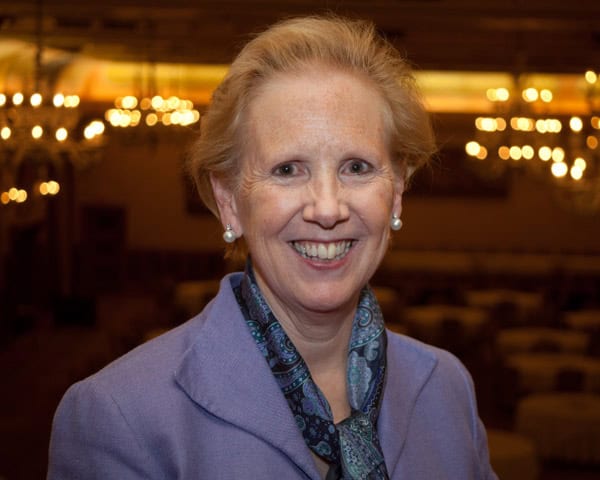A guidebook for those who choose to lead against the current
Structured around her ‘Courageous Operating System,’ Eveline Shen’s new book is a road map for leaders who are fighting for change to systems that oppress their communities and clients.

Hilary Pearson has worked in the field of foundation philanthropy in Canada for close to 30 years. As the founding president of Philanthropic Foundations Canada from 2001 to 2019 and as a consultant, writer, and interested observer, she has collaborated with many charitable foundations across the country.
Author of many articles, book reviews, and columns, she speaks frequently on Canadian philanthropy at conferences and workshops in Canada and internationally. She writes a regular blog on trends and issues in foundation philanthropy at hpearson.ca and is the author of the 2022 book From Charity to Change: Inside the World of Canadian Foundations.
From 2019 to 2023, Hilary was co-chair of the Advisory Committee on the Charitable Sector, advising the federal minister of revenue on charitable policy and regulatory issues. In 2018, she was made a member of the Order of Canada for her contributions to building the field of philanthropy in Canada. She serves as chancellor of Brock University in Ontario and sits on several non-profit boards, including the board of the Canadian Cancer Society.
Hilary lives on the mountain in Montreal and keeps active climbing the streets with her golden doodle.
Structured around her ‘Courageous Operating System,’ Eveline Shen’s new book is a road map for leaders who are fighting for change to systems that oppress their communities and clients.
In this optimistic new book, Dimple Abichandani writes that philanthropy’s purpose must evolve from “gilding – lightly covering up systemic challenges – to alchemy – investing in a true transformation of these systems,” offering some practical ideas for how foundations can rethink their practice.
What are the models for democratizing philanthropy through greater participation by the community, and what are the implications for foundation governance and practice? A new book summarizes the findings of nine research projects that aimed to map current practices, document experiences, and develop tool kits.
With a turbulent external environment, growing pressure on charities, and internal shifts in leadership and focus, the philanthropic sector is navigating significant change. It’s all adding up to what may be the biggest shift to foundation philanthropy we’ve seen in Canada, Hilary Pearson writes.
Le secteur sans but lucratif au Canada a évolué de manière remarquable au cours des quatre premières années de la décennie 2020. Il y a
Two new books explore post-pandemic developments in organized philanthropy across Africa, Asia, and the Middle East. They argue the merits of a new approach to philanthropy in these regions, more strongly focused on partnerships, networks, and innovation to create more impact.
Amy Schiller’s criticism of philanthropy is not that it is fundamentally wrong but that it needs to focus less on utility and more on beauty, writes reviewer Hilary Pearson.
In his new book, author Jacob Harold presents nine “tools” that can be used – in combinations or recombinations, depending on one’s strategy – to address complex social problems.